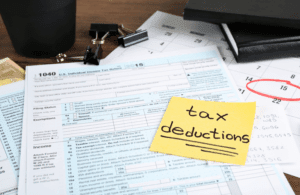
A knowledgeable tax advisor can provide valuable guidance on navigating the diverse and changeable sales tax regulations in the US. They help businesses devise strategies to ensure accurate sales tax collection during transactions and facilitate smooth reporting when filing tax returns. Moreover, they will be familiar with the fundamentals of sales tax, such as when it applies to drop shipping, and will guarantee that retailers remain in compliance with the current rules and regulations. Regulatory requirements for drop shipping sales tax vary by jurisdiction.
Scenario 3: Ron Retailer provides Debbie Drop Shipper with a Resale Certificate
- The allure of the dropshipping model is that entrepreneurs can start an online business without investing much money up front (e.g. buying all their inventory) and without a ton of overhead costs (e.g. renting storage space).
- There is a transfer of title from your vendor and your company at the moment the goods are delivered to your customer.
- That’s because there’s usually a sales tax exemption for purchases intended for resale.
- If Rebecca _doesn’t _have sales tax nexus in Bella’s ship-to state, then she doesn’t have to collect sales tax from her.
A supplier’s sale to a seller is usually an exempt wholesale transaction because the seller is purchasing the goods to resell them. This is true even if the supplier has nexus and an obligation to collect sales tax in the seller’s state. The best way to comply with dropshipping tax regulations is to use https://www.bookstime.com/ a cloud-based tool that automates the entire process, from charging the correct tax rate to collecting payment to issuing the proper invoice. All of your records are kept safely online for you, even if your computer crashes. Bella Buyer is located in a state where Rebecca Retailer has sales tax nexus.
- For simplicity, these scenarios assume that each party to the drop shipment is located in a different state and that the goods are shipped from outside of the destination (i.e. end-customer’s) state.
- Another crucial aspect of managing sales tax compliance in drop shipping is handling resale and exemption certificates.
- Chances are, your suppliers are shipping products into the U.S. from other countries.
- But, as we’ve often found with anything sales tax-related, there’s a wrinkle.
Drop Shipping and Sales Tax: A Simple Guide

But, as we’ve often found with anything sales tax-related, there’s a wrinkle. If your business is located outside the EU…Then you must register for EU VAT and begin charging tax once you surpass the thresholds mentioned above. Physical nexus is created when you have real property in a state, like an office or brick-and-mortar store. Having employees in the state can also establish physical nexus — even if they’re only there temporarily — as can having inventory in the state (including inventory controlled by a marketplace facilitator). Want to know more about sales tax and how to get started with TaxJar? Visit TaxJar.com/how-it-works to learn how you can be compliant and remove the burden of sales tax for yourself.

Understanding Multistate Regulations
- In this scenario, Debbie does not collect sales tax from Ron, even if Debbie has sales tax nexus in the state where Bobby Buyer is located.
- Getting the hang of how much tax to collect, how to source, and when to pay this tax can be daunting for beginners.
- All of this can lead to much friction and frustration between trading partners, as well as mistakes in terms of which party is responsible for collecting sales tax.
- When it comes to drop shipping, the retailer must account for sales tax and be aware of the tax implications in each state where they have a nexus.
- In response, they have begun requiring retailers to either pay sales tax or present valid resale certificates or other documentation.
Include any duty taxes that apply when shipping products overseas, ensuring customers are aware of possible additional charges. This article cuts through the confusion and empowers you to navigate the world of dropshipping sales tax confidently. Sometimes your small business takes an order for a product you don’t actually have in stock at your location. You might not even actually carry that item, nor have you ever carried that item. However, because you love your customers and want to cater to their needs, you ordered the item from a third party; maybe a wholesaler warehouse, or a manufacturer. Drop shipping is one of the more complicated aspects of sales tax law.

Implement our API within your platform to provide your clients with accounting services. The beauty of Quaderno is that once you’re using it with Shopify, you can easily integrate it with these other channels — so that all of your tax information in one place! And all of it can be delivered in an easy tax report, with the click of a button. In this case, Rebecca Retailer pays Dan Dropshipper for the hat, and Bella Buyer pays Rebecca.

With all taxable sales, sellers are required to collect sales tax, an exemption certificate, or a resale certificate. Let’s say you have nexus in Virginia because that is your home state and the location of your office. If the customer is located in Virginia, no matter how the sale is made, through traditional who pays sales tax on drop shipments shipping or drop shipping, you are responsible for collecting sales tax, not the vendor. The primary rule is a resale certificate for the ship to state issued by the retailer. However, if the retailer isn’t registered in the ship to state, can they legally issue a resale certificate for the ship to state?
- You don’t want to make a misstep here, so you should work with a tax professional to help you legally pay fewer taxes.
- So if the retailer does not have nexus in the state where the product is purchased, the supplier may be on the hook to collect and pay sales tax.
- This can lead to logistical and taxation complexities, particularly when dealing with multiple suppliers and various sales tax jurisdictions.
- With the nature of how drop shipping functions, it’s almost guaranteed one party is functioning as a reseller.
- The bad news is that exemption certificate fraud is so common that some suppliers won’t accept exemption certificates anymore.
- It’s important to recognize that failure to comply with these regulations can result in severe financial and legal repercussions.

